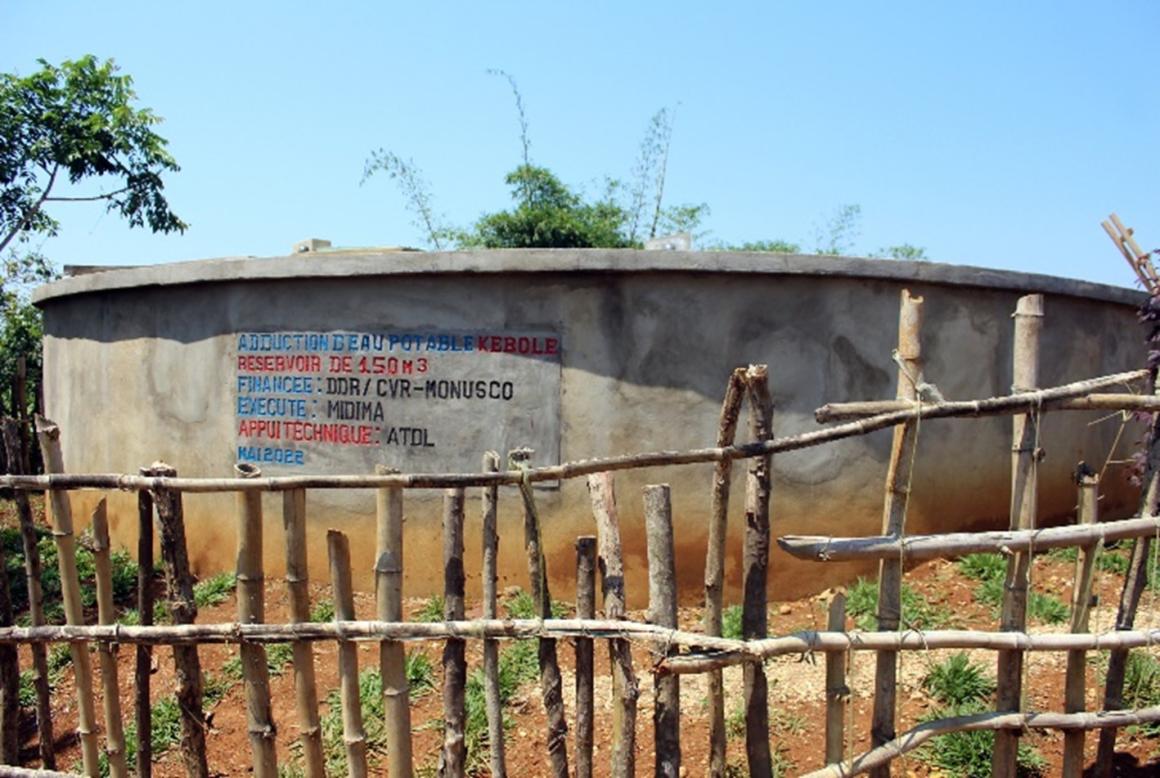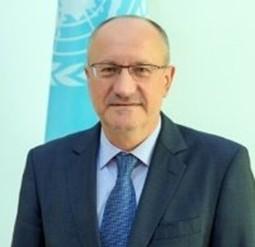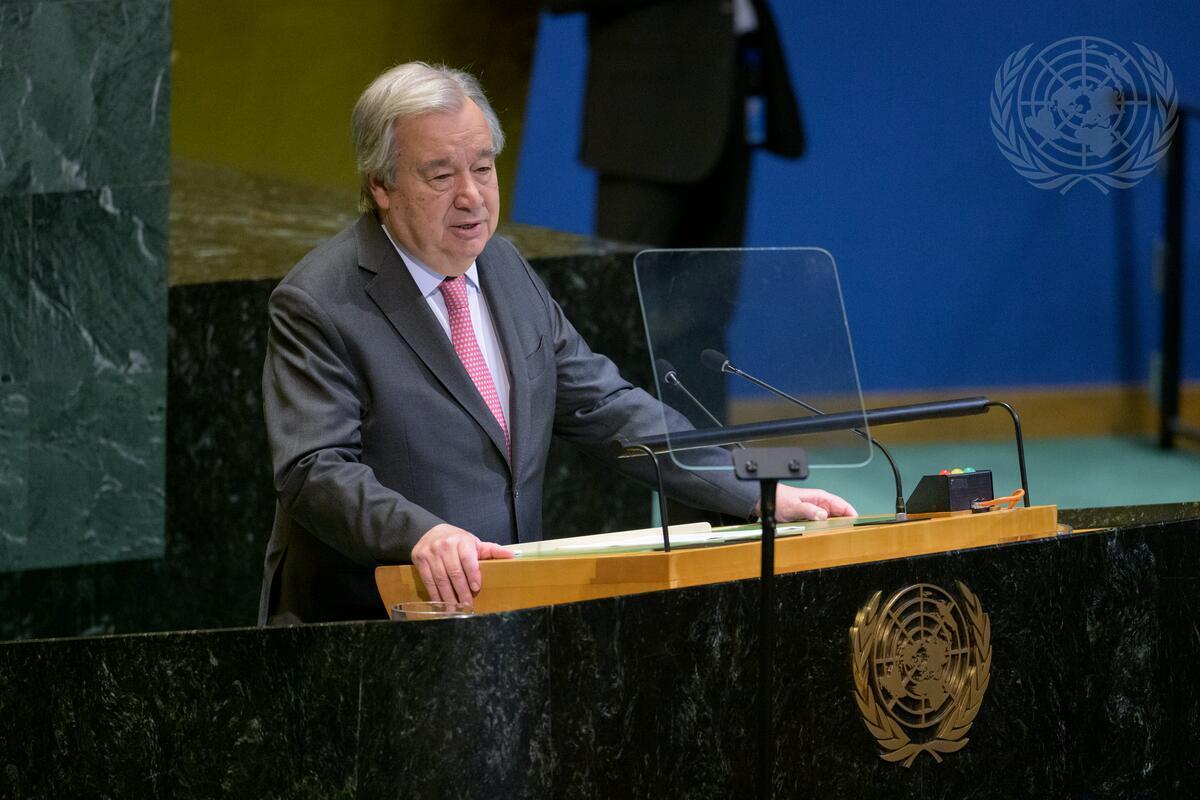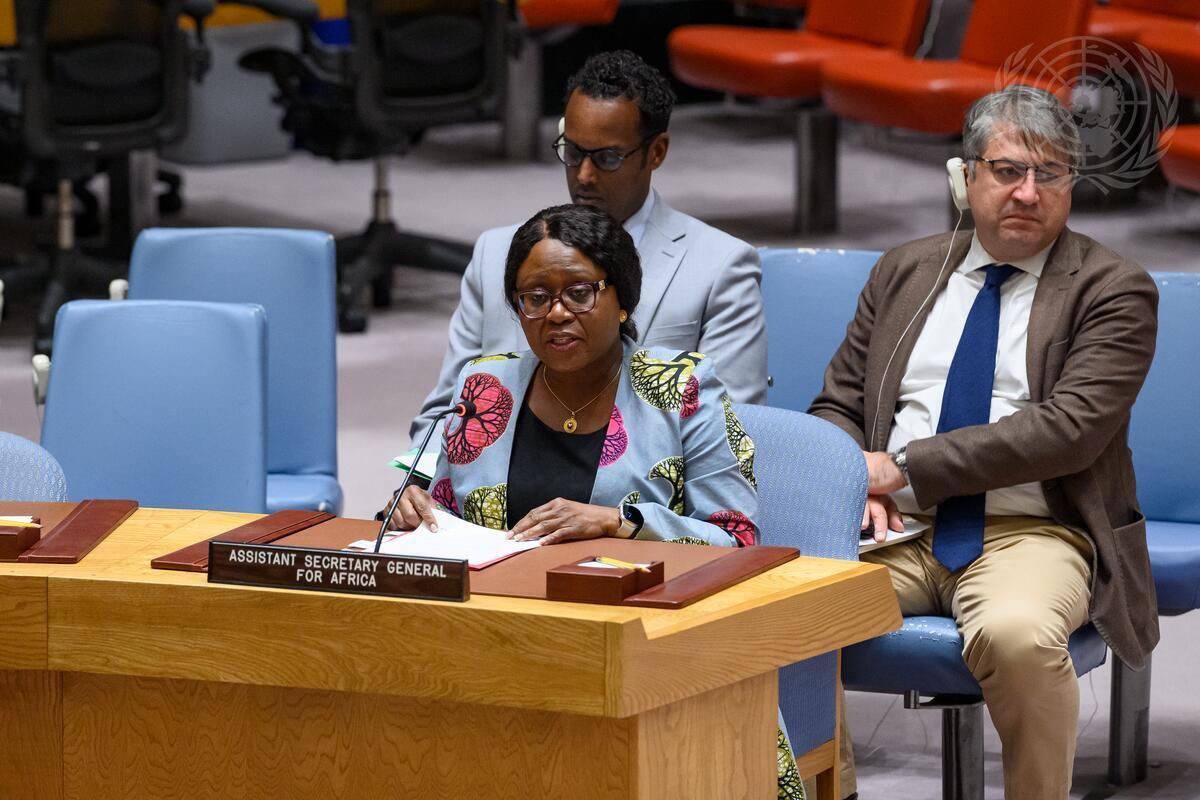Volker Perthes, Special Representative of the Secretary-General for Sudan and Head of UNITAMS, recently marked 100 days since his arrival in the country on 2 February. The period has seen inter-communal violence in West Darfur, but has also been marked by optimism, with upcoming peace talks in Juba, South Sudan, being a step in the right direction. In an interview shortly after his arrival, Mr. Perthes said that encouraging and supporting Sudanese stakeholders to stay on course in their path towards peace, political transition, and economic development would be his main focus. We sat down with the Special Representative to hear his thoughts on his first 100 days.
You have already travelled quite extensively around Sudan in order to meet with different stakeholders. Can you tell us a bit more about these trips and why it is important to interact with people from all over the country?
Travelling around the country is indeed important, because Khartoum is not necessarily the same as the rest of the country. The history of Sudan is that it has been heavily Khartoum-centralized and that many of the other regions have been marginalized. You know how it is in theory, but you need to see it in practice, to talk to the people who try to make a living in the marginalized regions. These regions are often, but not always, conflict regions. Some of them are post-conflict regions, and we fear that others could become pre-conflict if not enough attention is paid to them.
We started by visiting the East, Kassala and the Red Sea coast, areas that have not only been marginalized by the government, but also escaped international attention. These areas witnessed no civil war, so they received less humanitarian funding and very little political money has come in. In contrast, Darfur, which was my second trip, has had a strong international focus for about 20 years. A lot of money has come in and a lot of people have been trained. Even though it defies some of the ideas about Sudan, Darfur is probably much better developed than several other regions in the country. I also made a trip to Wad Madani in the center of the country, traditionally the main agricultural heartland, with cotton production for the world market. Unfortunately, there is not much for the world market now.
When we travel, we speak to the officials, that is the governors and their staff, the security establishment, because most of the regions have enormous security problems. We also speak to civil society, traditional leaders and tribal and ethnic groups, particularly in areas of conflict. You see quite different patterns of cooperation, coexistence and conflict. We go to displaced people’s camps, we speak to lawyers, doctors and students, and we try to figure out what the international community, and what UNITAMS could do to improve the situation.

In early April, clashes between different tribes claimed the lives of at least 144 people in El Geneina, West Darfur. Can you tell us why it is important to address the root causes of conflict in Darfur?
The advantage of UNITAMS is that it is an integrated mission, working with the entire UN Country Team. UNITAMS does not do projects, it does not do development or humanitarian aid, but the UN family does. Working together with the UN family allows us to address some of these root causes, which are marginalization and underdevelopment. I would not say tribal conflicts, because the tribes have always been there, they are part of the reality, but conflicts are contingent on opportunities, on resources and the distribution of resources.
Differences between ethnic groups have been used by political actors, not just in the last 30 years, but much longer than that. If you want political root causes, you can say centralization and marginalization, but also the lack of equal citizenship for the people of Sudan. You do not deal with this by giving development aid, but at the same time, development helps people decide how they want to live and how they want to build their own future.
It is interesting that when you go to some areas of Darfur, and the same applies to the East, you would see that there are political conflicts between different groups, but they do agree on one thing, and that is that the countryside has been left out of development: that they need education, health, and that they need international support. The problem is that, particularly in Darfur, different communities have actually become too accustomed to the international community doing the development for them, rather than them doing the development and then asking for the additional input that they might need.
On 24 May, representatives from the transitional Government of Sudan and the Sudan People's Liberation Movement – North(SPLM-N) will convene in the South Sudanese capital, Juba, to discuss participation in the Juba Peace Agreement. You travelled to Juba recently to meet with some of the actors. What is UNITAMS’ role in these peace talks?
As UNITAMS, we are, and I am, in contact with the parties that are going to sit at the table, which means the Government of Sudan and the SPLM-N under the leadership of Abdelaziz al-Hilu. What might be more important for our role here, is that we are in close contact during the negotiations and with the mediation team from South Sudan. They will be the mediators. We will play the role as facilitator, which means providing both technical support and expertise. Our people will be in the room, and they will be prepared to facilitate whenever there is a need. That could be through our contacts or our good offices, that can be used by both sides.

A core aspect of UNITAMS’ mandate is to support the Government of Sudan in the current transition. How has this work been going so far?
We are supporting the Sudan, and that includes the transitional authorities, with all its components, on the four tracks which we see as our strategic objectives. These have been defined by Security Council resolution 2524 (2020), which is our mandate.
We are supporting them on political transition, which includes electoral support and facilitating and supporting the upcoming talks between the Government and SPLM-N. We support peace implementation and peace building, with a couple of very concrete projects, police training for example, on protecting civilians. One of the most critical elements in peacebuilding is that the people in the regions where peace is going to take over, feel safe. That they can address the legal and legitimate law enforcement agencies when they have a problem with their neighbors, instead of taking up arms themselves or hope that some militia will do it for them.
We have a very concrete project where 12 individual police officers (IPOs) are training Sudanese police officers in community policing, in going after sexual and gender-based violence and in the protection of civilians. This is probably the most concrete project that we have launched, and I am quite proud of it. The international policemen and women that have gone to Darfur have been welcomed by their Sudanese colleagues. They say that they need our support and that they want to do better, like the police in any respected state. That is peacebuilding. Then there is the element where we hope that the Sudanese Government will garner economic resources from the outside. I am also talking to officials, the private sector and development banks in Europe, the US and other parts of the world.

Given all that you have mentioned, how would you assess your first 100 days in Sudan?
My first 100 days have been full of exciting work; not one dull minute here in Sudan. Aside from what I have learned in substance about Sudan, about the work of our partners in the agencies of the United Nations, and about Sudanese actors, I think I am more convinced than ever that it was the right thing to take this job. As a small mission with quite a broad mandate, UNITAMS can make a difference in Sudan, and that is what makes it worthwhile to be here in Sudan






